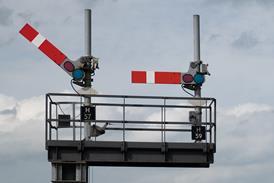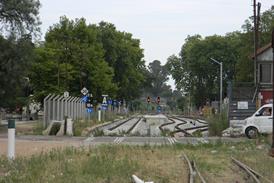HAVINGPOSTPONED a decision expected on July 25, the Tribunal de Commerce in Paris finally agreed on August 2 to grant Eurotunnel’s request made on July 11 for protection from holders of debt with a face value of £6·2bn.
The Group, including 17 related entities, is now barred from paying interest or repaying debt for six months. The court can also extend the period of protection. On August 16 Standard & Poor’s downgraded £240m of senior bank loans to ’D’ (default) because interest due was withheld.
But Eurotunnel is not insolvent. Results for the first half of 2006 show an operating margin of £161m, and it could have met all its obligations until January 2007 before running out of money. For now the court has appointed two judicial administrators who will try to secure agreement from the Group’s Joint Board and its quarrelling creditors on a restructuring plan that will reduce the debt to around £2·9bn. Eurotunnel believes this to be the highest level that can be serviced out of future operating profits.
The basis for this restructuring is expected to be a plan tabled at 23.00 on July 12 by Eurotunnel’s Chairman & Chief Executive Jacques Gounon. Negotiations collapsed early on July 13 because the two creditor groups represented by the Ad Hoc Committee for middle-ranking debt and Deutsche Bank for the junior bondholders could not close the gap between them.
Immediately after protection was announced, Eurotunnel claimed ’there is now a convergence of view amongst principal creditors’ that the July 12 proposal ’will lead to a reconciliation of their positions.’ Since then there has been silence.
Meanwhile, Eurotunnel confirmed on July 27 that it had settled a long-running dispute with the railways over the share of its operating costs they are obliged to pay. While this is helpful, concern is mounting over the future of rail freight. After peaking at 3·14million tonnes in 1998 it is now barely half that, despite the fact that the British government is paying all of the UK’s share of the Minimum Usage Charge for freight which ends on November 30.
The UK’s Rail Freight Group warned last month that ’in three months the current charging structure for rail freight through the Channel Tunnel stops and there is no indication as to what will replace it.’ While RFG believes ’nobody is expecting massive subsidies’, it deplores the absence of ’any talking or engagement, even by the European Commission; surely they have a duty to try and ensure that a Trans-European Network route does not close?’




















